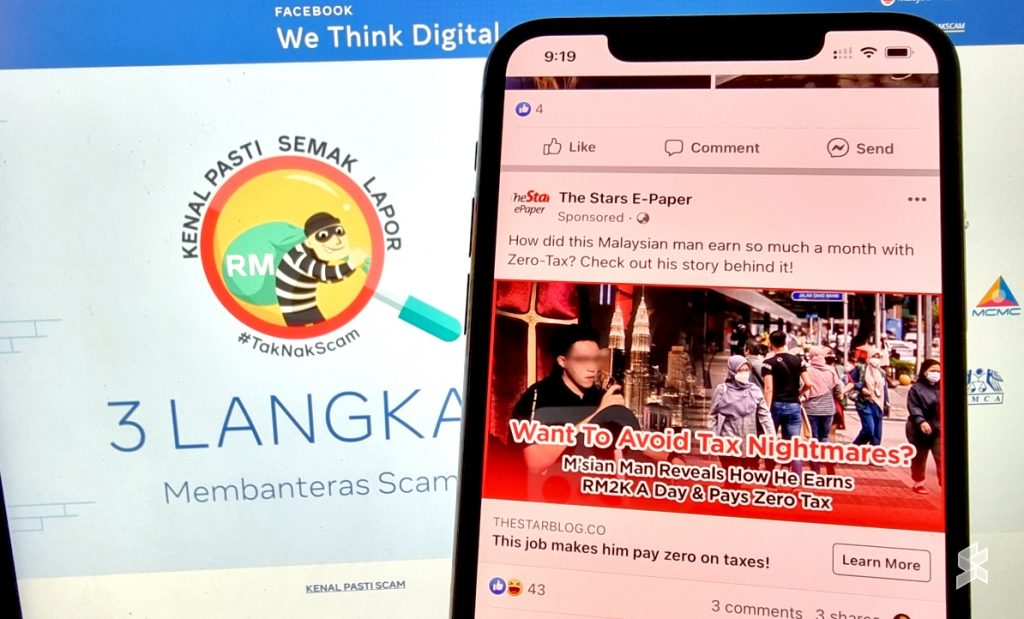Communications and Digital Minister Fahmi Fadzil has instructed the Malaysian Communications and Multimedia Commission (MCMC) to get answers from Meta over its failure to tackle the ever-rising online scam ads on Facebook and Instagram. Fahmi himself was recently a victim of impersonation as his face was misused for a scam ad promoting an investment scheme.
Fahmi said Meta has failed to act on scam ads which include purported ads about cleaning services and car sales, which were rampant on Facebook. He added that he wants to understand why Meta is slow to act at detecting scam ads.
The minister added that social media platforms should have their local presence in Malaysia if they have not done so. He said the lack of a local presence could delay their response time to tackle scams.
Social media scam ads particularly from Facebook are a known issue which was been highlighted repeatedly on SoyaCincau.com. Besides impersonating public figures and brands, these scam ads have also impersonated mainstream newspaper titles including The Star, New Straits Times, Sin Chew Daily and The Edge.
Meta as the advertising platform must be held responsible for approving scam ads which are clearly against its own advertising policy. Most of these scam ads can be prevented if Meta conducts basic checks on new advertisers and if they set up a local moderation team to act on complaints.

Meta currently has an official office in Kuala Lumpur but they have confirmed that all advertising moderation is handled using their algorithm and a team that’s based outside of Malaysia. In short, not a single person in Meta’s office in Malaysia is able to take down any scam ads reported. In some cases, it takes days or weeks for Meta to take down the ads after it was reported. The longer the ad runs, Meta is set to gain from the ad revenue while more Malaysians are at higher risk of financial losses due to scams.
At the moment, the MCMC has insufficient powers to act on Meta as current policies do not cover online platforms hosted overseas. Without a strong framework, there’s very little to no pressure for Meta to take the online safety of Malaysians seriously. With virtually automatic approval for scam ads without basic checks, it is clear that Meta is prioritising revenue over user safety. Most recently, Mark Zuckerberg said users can pay a monthly subscription fee (about RM60/month) for Meta Verified to get faster support including quicker response to act on impersonating accounts.
Fahmi, as a lawmaker, should introduce new policies and regulations to hold social media platforms accountable. The least Malaysia could do is to make it mandatory for large online platforms to have a local moderation team and enforce mandatory checks on ads targetting Malaysians.
[ SOURCE ]
 (@fahmi_fadzil)
(@fahmi_fadzil)
0 comments :
Post a Comment